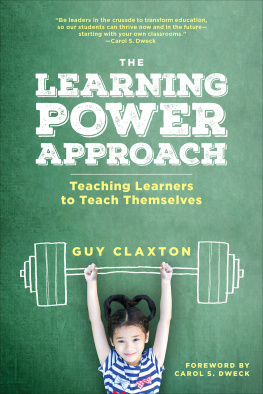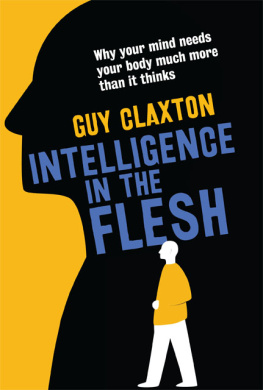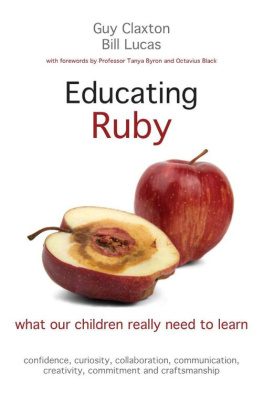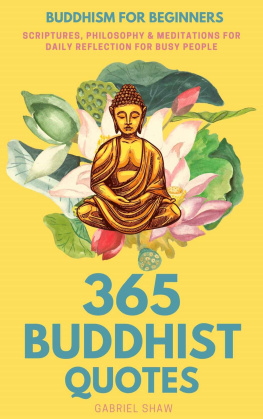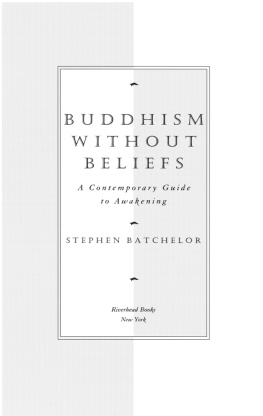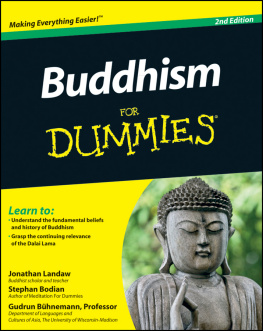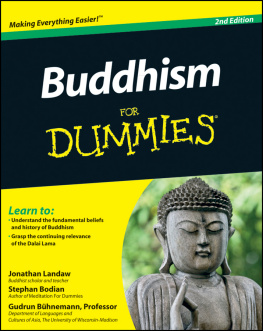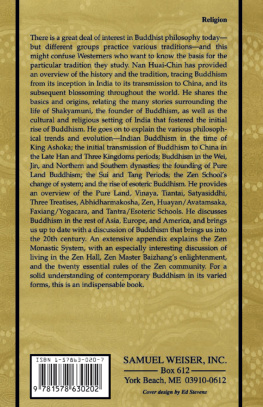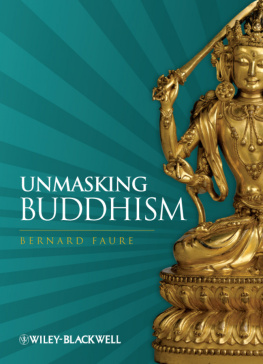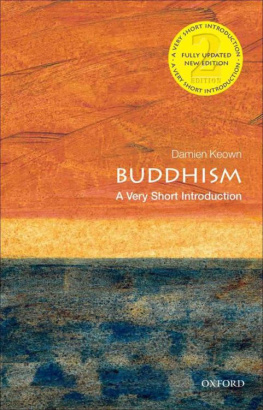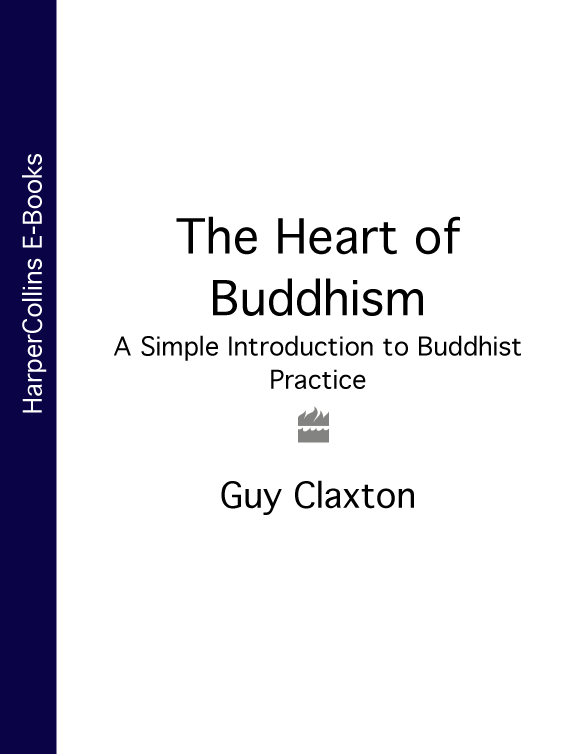is a Senior Lecturer at Kings College London Centre for Educational Studies. He is currently on secondment to Schumacher College, a new international centre for studies informed by ecological and spiritual values, at Dartington, Devon. He has a doctorate in experimental psychology from Oxford, and has written a number of books on education, psychology and religion, including: Beyond Therapy: The Impact of Eastern Religions on Psychological Theory and Practice , (ed) (Wisdom Publications, 1986), Living the Faith: Buddhist Lives (Oliver and Boyd, 1989) and Being a Teacher: A Positive Approach to Changes and Stress (Cassell, 1989).
I HAVE deliberately kept the technicalities in the text to a minimum. It is very easy for Buddhism to get clogged up with all its wonderful scriptures and stories and Sanskrit, Pali, Japanese, Burmese and Tibetan terms. Until you have a firm grasp of the heart of the matter, it is easy to get enchanted, alienated or confused by all this exotica. Anyway, there are many excellent books that explain the traditional concepts and formulations.
Nevertheless, I thought it might be useful to collect in this glossary some of the most common Buddhist ideas, so that you may more easily translate the modern, colloquial account which I have tried to give here back into the more orthodox ways of putting things. Most of the terms here have appeared in the text, but I have included brief comments on a few concepts that I did not manage to get round to. I shall even be so lazy as to leave out the accents, and to muddle up Sanskrit and Pali without distinction, choosing whichever term seems to have the more general currency.
Abhidharma One of the three main collections of Buddhist literature, along with the sutras (q.v.) and the vinaya (the rules and regulations for monks and monasteries). The abhidharma is the most academic, containing philosophical writings, and a kind of psychology that divides all aspects of our experience into a complex system of sub-categories.
Anatta The discovery that there is no ghost in the machine, no personalized little self running the show from behind the scenes, and therefore no local entity at all that needs to be defended or sustained or which even could be. There is action; there is experience, there is awareness. End of story. Peace of mind.
Anicca The fact of change and impermanence which we find so uncongenial, and which we try so hard, and eventually so vainly, to do battle with, or ignore. Even our own life especially our own life will pass away, and we can trust our bodies to postpone this as long as possible and accept it when it becomes inevitable (both of which they are designed to do). There is nothing that our mental efforts need to do, or can do, to make the situation more to our conscious liking. Likewise the world that produced us will most certainly not pander to our conditioned whims; yet we persist in throttling ourselves like a puppy on a lead.
Bhikkhu An ordained Buddhist monk.
Bodhicitta The frame of mind, which the mahayana (q.v.) seeks to cultivate deliberately, within which the welfare of all beings, people and animals is felt to be ones own personal immediate and pressing concern.
Bodhisattva One bound for awakening, usually someone who is well on the way to enlightenment. In the mahayana (qv.) bodhisattvas are characterized by their great concern for others so great that they vow to postpone their own final salvation until they have first helped everybody else in the world into nirvana . The emphasis on this is tied up with their superior attitude to the Theravadins, who are accused of being Queue behind me for the lifeboat Buddhists.
Brahma viharas The sublime states or divine abodes which are the traditional fruits of vipassana meditation: loving kindness ( metta ), compassion ( karuna ), sympathetic joy ( mudita ) and equanimity ( upekkha ).
Buddha The historical founder of Buddhism, Siddhartha Gautama; or anyone who has realized their inherent Buddha-nature (i.e. is enlightened); or the essential truth, the Buddha-nature itself, whether realized (authenticated) by an individual or not. Literally Buddha means one who has woken up to the basic truth of things, the dharma (q.v.).
Buddha-nature The basic purity and clarity of mind that persists quite unsullied but obscured by the host of misapprehensions with which our upbringing contaminates us especially those concerning our own identities. When these are finally dissolved away by meditation, Buddha-nature, our original face, as Zen calls it, shines forth.
Cittamatra The central mind only doctrine of the yogacara (q.v.) school.
Dana The act of giving, especially to a bhikkhu or a guru , but more loosely, any uncalculated generosity or hospitality. This is not seen as morally good so much as being of practical benefit to the student on the path. A specific practice involves deliberately making a gift to someone towards whom you are feeling angry or hostile.
Dharma The collected body of Buddhist teachings; or the underlying natural laws that the unfolding of the universe is bound to obey; or, especially in the abhidharma , the primitive elements of our experience.
Dharmakaya The aspect of Buddha-nature that refers to the true perception of reality; the quality of mind of an enlightened person.
Dukkha Usually translated as suffering, which is perhaps a little too dramatic and off-putting. The fact of dukkha is the first of the Noble Truths, and dukkha itself, along with anicca and anatta , comprise the three Marks, or indelible characteristics, of existence. Dukkha refers to all the uncomfortable aspects of being alive, both physical and psychological: the pain of dying; of losing a loved one; of guilty memories; of trying to cling on to the good times; of hankering for what you havent got.
Enlightenment The moment in which Buddha-nature is irreversibly perceived. There may well have been earlier glimpses, but enlightenment is the final awakening that permits no more sleeping. It is the ultimate experience over which you do not get.
Guru A spiritual teacher.
Hinayana The somewhat pejorative name, meaning the lesser vehicle, applied to the theravada school by followers of the mahayana.
Karma The view that as ye sow, so shall ye reap. Strictly karma refers to the intention, or the state of mind, behind an action, rather than the act itself; but either way, it is a basic law of the universe that your chickens will eventually come home to roost, whether in this life, in terms of personal good or bad feeling or real retribution, or in the next, karma determining the form in which you will be reborn. Traditionally karma was closely linked to the idea of rebirth as a physical phenomenon, but some teachers in the West allow karma to be interpreted psychologically or metaphorically.
Karuna The quality of compassion that arises with meditation; feeling anothers sorrow or consternation as if it were ones own.
Lama The Tibetan for guru (q.v.).
Madhyamaka One of the two main branches within the mahayana school, as it developed during the first 500 years AD, the other being the yogacara (q.v.). Founded by Nagarjuna, it is more philosophical than psychological in flavour, claiming to undermine, by rational argument, the pervasive assumption that anything at all in the world, whether object or concept, can exist in and of itself, without dependence on The Whole for its origination, persistence or definition. When experience arises within a mind cleansed of this assumption, it reveals sunyata , the interdependence, the universal relativity, of all phenomena. Such reflection is a path, but a somewhat dangerous one, attempting to undermine a central confusion of the mind with the mind a path that continues to this day in a refined version, in the Rinzai tradition of Zen.


